Discover How Athletes Use CBD for Sleep: Expert Insight
As athletes, we understand the importance of quality sleep for optimal performance. That's why many athletes have turned to CBD as a potential aid for improving sleep. CBD, or cannabidiol, is derived from the hemp strain of cannabis and contains high levels of CBD and minimal THC, making it non-intoxicating. In fact, the World Anti-Doping Agency (WADA) has removed CBD from its banned substances list, allowing athletes to use it without consequence. However, it's essential to note that there is still limited research on its efficacy and long-term effects.
Key Takeaways:
- Many athletes turn to CBD as a potential aid for improving sleep quality and recovery.
- CBD is derived from the hemp strain of cannabis and contains high levels of CBD and minimal THC, making it non-intoxicating.
- The World Anti-Doping Agency (WADA) has removed CBD from its banned substances list, allowing athletes to use it without consequence.
- However, limited research exists on the efficacy and long-term effects of CBD use for athletes.
- It's important for athletes to approach CBD use with caution and consult with healthcare professionals.
The History and Rise of CBD in Sports
CBD's journey into the world of sports recovery has been a relatively recent development. It was previously overshadowed by the stigma and prohibition surrounding cannabis. However, with the legalization of hemp-derived CBD in the United States, its popularity has surged among athletes. CBD is known for its potential to improve sleep quality, which is crucial for athletes' recovery and performance. It has become a valuable tool for athletes seeking optimal rest and sleep.
As athletes strive to enhance their sleep patterns, the impact of CBD on their sleep quality has garnered significant attention. CBD has been found to potentially contribute to better sleep in athletes by regulating sleep-wake cycles and reducing symptoms of insomnia. The calming effects of CBD can help athletes unwind and relax before bedtime, promoting a more restful and rejuvenating sleep experience.
“CBD has become my go-to for improving sleep quality. It helps me relax and wind down after intense training sessions, allowing me to rest and recover better.”
Furthermore, CBD's potential to reduce anxiety and stress can also indirectly enhance sleep quality for athletes. Many athletes experience high levels of stress and anxiety related to their performance and competitive nature, leading to sleep disturbances. CBD may help alleviate these symptoms, allowing athletes to achieve a more peaceful and undisturbed sleep.
| CBD's Impact on Athletes' Sleep Quality | |
|---|---|
| Improved sleep patterns | CBD may regulate sleep-wake cycles and promote more consistent and restful sleep. |
| Reduced insomnia symptoms | CBD's calming properties can potentially alleviate insomnia symptoms and help athletes fall asleep faster. |
| Reduced anxiety and stress | By reducing anxiety and stress levels, CBD may indirectly improve sleep quality for athletes. |
Understanding CBD and its Forms
CBD, or cannabidiol, comes in various forms that athletes can choose from to incorporate into their sleep routine according to their preferences. These include CBD oil, CBD topicals, and CBD edibles.
CBD oil tinctures are a popular choice among athletes as they can be taken sublingually, allowing for faster absorption into the bloodstream. This form of CBD is often preferred for its convenience and versatility.
CBD topicals, such as creams and gels, are applied directly to the skin. Athletes can use these topicals to target specific areas of pain or inflammation, providing localized relief. The topical application of CBD allows for targeted absorption and can be a beneficial addition to athletes' recovery routines.
CBD edibles, such as candies and drinks, offer a convenient and discreet way to consume CBD. These products have become increasingly popular among athletes as they can easily be incorporated into their daily routine. Athletes can choose from a variety of CBD-infused edibles that suit their taste preferences and dietary needs.
The Different Forms of CBD
When considering CBD for sleep, athletes may find it helpful to understand the different forms of CBD and how they can be used. The table below provides an overview of the common forms of CBD and their key features:
| Form | Description | Benefits |
|---|---|---|
| CBD Oil | A liquid extract of CBD that is typically taken sublingually. | Fast absorption and versatile usage. |
| CBD Topicals | Creams, gels, or lotions infused with CBD for topical application. | Targeted relief for pain or inflammation. |
| CBD Edibles | Candies, drinks, or other food products infused with CBD. | Convenient and discreet consumption. |
“CBD oil tinctures are a popular choice among athletes as they can be taken sublingually, allowing for faster absorption into the bloodstream.”
It's important for athletes to consider their individual preferences and needs when choosing a form of CBD for sleep. Some athletes may prefer the convenience and versatility of CBD oil, while others may find that topicals or edibles better suit their lifestyle. Experimenting with different forms can help athletes determine what works best for them in terms of convenience, effectiveness, and overall sleep improvement.
Before incorporating any form of CBD into their sleep routine, athletes should consult with a healthcare professional to ensure it aligns with their specific needs and goals. Additionally, athletes should choose reputable CBD brands that adhere to quality and safety standards, as the CBD industry is currently largely unregulated. By selecting high-quality CBD products and considering their individual preferences, athletes can explore the potential benefits of CBD for sleep and recovery.
CBD and Athletes’ Safety: Contamination and Risks
The safety profile of CBD for athletes is a topic of concern due to potential contamination of CBD products and associated risks. While CBD is generally well-tolerated, it is important for athletes to be aware of potential issues when incorporating CBD into their routine.
One of the primary concerns is the contamination of CBD products with banned substances, such as THC. Some CBD products have been found to contain inaccurate levels of CBD and THC, with some exceeding the legal limit for THC content. This can lead to failed drug tests and potential doping-related bans for athletes.
Additionally, the long-term effects of CBD on athletes are still not well-understood. While most individuals experience minimal side effects, there may be potential risks, including digestive issues and drowsiness. It is crucial for athletes to carefully consider the safety and potential risks before using CBD products.
The Impact of Contaminated CBD Products
Contamination of CBD products poses significant risks for athletes.
“Studies have revealed that some CBD products contain inaccurate levels of CBD and THC, with some exceeding the legal limit for THC content.”
Athletes rely on CBD for sleep and recovery, and the presence of THC in their system due to contaminated products can have severe consequences. Therefore, athletes should be diligent in choosing reputable brands that undergo third-party testing to ensure product quality and minimize the risk of contamination.
| Contamination Risks | Potential Consequences |
|---|---|
| Inaccurate levels of CBD and THC in products | Failed drug tests and potential doping-related bans |
| Presence of banned substances, such as THC | Negative impact on athletic career and reputation |
| Lack of quality control and regulation in the CBD industry | Inconsistent product quality and potential health risks |
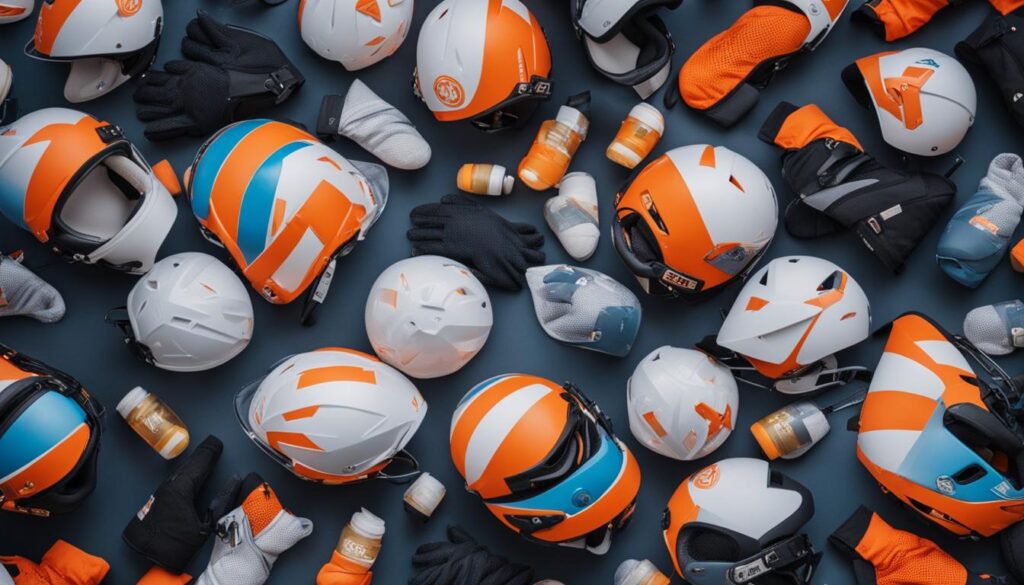
The Potential Benefits of CBD for Sleep Quality
Research suggests that CBD may offer potential benefits for improving sleep quality, making it a promising option for athletes seeking better rest and recovery. One of the ways CBD may contribute to better sleep is through its anti-inflammatory properties. Inflammation in the body can disrupt sleep patterns and contribute to sleep disorders. CBD's ability to reduce inflammation may help promote a more restful sleep for athletes.
In addition to its anti-inflammatory effects, CBD may also offer pain relief, which can further improve sleep quality. Athletes often experience pain and soreness from rigorous training, and these discomforts can negatively impact sleep. CBD's potential analgesic effects may help alleviate pain, allowing athletes to achieve better sleep and wake up feeling refreshed and rejuvenated.
While early studies show promising results, more research is needed to fully understand the specific effects of CBD on sleep quality in athletes. It's important to note that individual responses to CBD may vary, and athletes should consult with a healthcare professional before incorporating CBD into their sleep routine. By considering the potential benefits and consulting with experts, athletes can make informed decisions about using CBD for sleep improvement.
“CBD's anti-inflammatory properties may promote better sleep, while its potential analgesic effects can provide pain relief for athletes.”
| Potential Benefits of CBD for Sleep Quality | |
|---|---|
| Anti-Inflammatory Effects | CBD's anti-inflammatory properties may help reduce inflammation in the body, contributing to better sleep. |
| Pain Relief | CBD's potential analgesic effects can alleviate pain and soreness, improving sleep quality for athletes. |
| Individual Variations | Responses to CBD may differ among individuals, and athletes should consult with healthcare professionals for personalized guidance. |
The Role of CBD in Recovery and Performance
In the world of sports, athletes are constantly seeking ways to enhance their recovery and performance. One emerging tool that has gained attention is CBD, or cannabidiol. CBD has been touted for its potential to aid in the recovery process, reduce inflammation, and promote better sleep quality. While there is still limited research on its efficacy and long-term effects, some athletes have reported positive experiences with CBD.
When it comes to athletic recovery, CBD may assist in reducing inflammation and muscle soreness. By interacting with the body's endocannabinoid system, CBD may have anti-inflammatory properties that can help athletes bounce back faster from intense workouts or injuries. Additionally, CBD's potential to alleviate anxiety and improve sleep quality may play a role in enhancing athletic performance.
However, it is important to note that CBD is not a magical solution. It should be used as part of a comprehensive recovery and training regimen. Athletes should prioritize other key factors, such as proper nutrition, hydration, rest, and rehabilitation. CBD should be viewed as an adjunct to these essential components, rather than a standalone solution.
In conclusion, while CBD shows promise as a potential aid in athletic recovery and performance, there is still much to learn. Future research is needed to fully understand the mechanisms of CBD and its specific effects on athletes. As the landscape of CBD in sports continues to evolve, it is important for athletes to approach its use with caution, consult with healthcare professionals, and choose reputable CBD brands that adhere to quality and safety standards.
When considering the use of CBD as an athlete, there are several important factors to take into account. One such factor is the potential impact on drug testing. While CBD itself is not considered a banned substance, some CBD products may contain trace amounts of THC, the psychoactive compound in cannabis. These small amounts of THC can accumulate in the body over time and may result in a positive drug test. Athletes should be aware of the THC content in the CBD products they are using and consider opting for THC-free options to minimize any potential risks.
Another consideration for athletes using CBD is its potential effect on metabolism. CBD has been found to interact with certain enzymes in the liver, which can impact the metabolism of other medications. It is important to consult with a healthcare professional before incorporating CBD into an athlete's routine, especially if they are taking any other medications that may be affected by CBD. Understanding how CBD may interact with an individual's metabolism can help ensure safe and effective use.
Additionally, athletes should be mindful of potential drug interactions when using CBD. CBD can interact with certain medications, including blood thinners and antiepileptic drugs. These interactions can alter the effectiveness and safety of both CBD and the other medications. It is crucial for athletes to consult with their healthcare team to determine if any potential drug interactions may occur and how to manage them appropriately.
The Importance of Consultation and Vigilance
Ultimately, athletes considering the use of CBD should approach it with caution and seek guidance from healthcare professionals who have experience with CBD. This can help ensure that athletes are making informed decisions and taking appropriate precautions to mitigate any potential risks. By consulting with experts and staying vigilant about the THC content, metabolism effects, and potential drug interactions, athletes can incorporate CBD into their routine safely and effectively.
| Considerations for Athletes Using CBD | |
|---|---|
| Impact on Drug Testing | Athletes should be aware of the THC content in CBD products to avoid potential positive drug tests. |
| Effect on Metabolism | CBD can affect the metabolism of other medications, so consulting with a healthcare professional is crucial. |
| Drug Interactions | Athletes should be mindful of potential interactions between CBD and other medications. |
Lack of Research and Regulatory Oversight
Despite the growing popularity of CBD among athletes, there is still a lack of comprehensive research on its efficacy and safety. Most studies are in the early stages or have been conducted on animals, making it challenging to draw definitive conclusions.
Without sufficient research, it is difficult to determine the optimal dosage, timing, and specific benefits of CBD for athletes' sleep and recovery. The current limited evidence suggests that CBD may have potential benefits, such as reducing inflammation and promoting better sleep quality, but more studies are needed to confirm these effects.
Furthermore, the CBD industry remains largely unregulated, resulting in inconsistencies in product quality and labeling. Athletes need to approach CBD with caution and choose reputable brands that adhere to quality and safety standards. Third-party testing and transparency in manufacturing processes can help minimize the risk of contamination and ensure athletes are consuming products that contain accurate CBD levels.
| Key Points | Implications |
|---|---|
| Lack of comprehensive research on CBD | Uncertainty about optimal dosage, timing, and benefits for athletes |
| Inconsistent product quality and labeling | Risks of contamination and inaccurate CBD levels |
| Unregulated industry | Need for athletes to choose reputable brands and products |
The Need for Further Research
For athletes to make informed decisions about incorporating CBD into their sleep and recovery routine, more rigorous and conclusive research is necessary. Larger-scale human studies that evaluate the long-term effects and optimal use of CBD in athletes are needed to provide evidence-based guidance.
“Without sufficient research, it is difficult to determine the optimal dosage, timing, and specific benefits of CBD for athletes' sleep and recovery.”
Additionally, research should explore potential interactions between CBD and other medications commonly used by athletes. Understanding the effects of co-administration and potential risks will ensure the safety and well-being of athletes who may be taking multiple substances.
Regulatory Oversight and Quality Control
To address the inconsistencies in product quality and labeling, regulatory oversight of the CBD industry is crucial. Establishing clear guidelines and standards will help ensure that athletes have access to safe and accurately labeled CBD products.
“Athletes need to approach CBD with caution and choose reputable brands that adhere to quality and safety standards.”
Third-party testing should be conducted to verify the potency and purity of CBD products. This will help prevent the inadvertent consumption of banned substances, such as THC, which can lead to failed drug tests and potential consequences for athletes.
In conclusion, while CBD shows promise as a potential aid for athletes' sleep and recovery, more research is needed to understand its full benefits and risks. Athletes should proceed with caution and seek out reputable brands that prioritize quality and transparency. Regulatory oversight will play a crucial role in ensuring consistent product standards and protecting the well-being of athletes.

The Impact of CBD Contamination
Contamination of CBD products is a significant concern for athletes. Studies have revealed that some CBD products contain inaccurate levels of CBD and THC, with some exceeding the legal limit for THC content. This poses risks for athletes who rely on CBD for sleep and recovery, as they may unknowingly consume higher levels of THC, which can result in failed drug tests.
To mitigate the risks of contaminated CBD products, athletes should prioritize choosing reputable brands that undergo third-party testing. These tests ensure product quality and minimize the risk of contamination. By selecting trusted brands, athletes can have more confidence in the safety and effectiveness of the CBD products they use.
“The contamination of CBD products with THC poses a serious threat to athletes who undergo regular drug testing. It's crucial for athletes to be vigilant and thoroughly research the brands they trust to avoid any potential risks associated with contaminated CBD products.”
By being informed and proactive, athletes can protect themselves from the risks of contaminated CBD products. Third-party lab testing results can provide transparency and reassurance regarding the CBD and THC levels in products, allowing athletes to make informed decisions. Additionally, staying up-to-date with regulatory changes and industry standards can help athletes navigate the CBD market with confidence.
Safeguarding Athletes: How to Choose a Reputable CBD Brand
When selecting a CBD brand, athletes should consider the following factors:
- Third-party lab testing: Look for brands that provide third-party lab test results for their products. These results should confirm the CBD and THC levels in the product, ensuring accuracy and transparency.
- Product sourcing: Choose brands that use high-quality, organic hemp to minimize the risk of contamination. Organic hemp is cultivated without the use of pesticides or herbicides, reducing the chances of harmful substances ending up in the final product.
- Customer reviews and reputation: Research the brand's reputation and read customer reviews to gauge the experiences of others. Positive reviews and a strong reputation can indicate a reliable and trustworthy brand.
- Product labeling: Pay attention to how the product is labeled. Look for clear and accurate information regarding CBD and THC content, as well as any potential allergens or additives in the product.
By following these guidelines, athletes can prioritize their safety and well-being when choosing CBD products. Being proactive in selecting reputable brands and conducting thorough research can help athletes avoid the risks associated with contaminated CBD products and confidently incorporate CBD into their sleep and recovery routines.
| Key Takeaways |
|---|
| Contamination of CBD products is a concern for athletes due to inaccurate CBD and THC levels. |
| Athletes should choose reputable brands that undergo third-party testing to ensure product quality and minimize the risk of contamination. |
| Consider factors such as third-party lab testing, product sourcing, customer reviews, and accurate product labeling when selecting a CBD brand. |
The Role of CBD as an Adjunct Sleep Aid for Athletes
Athletes' sleep quality plays a vital role in their performance and overall well-being. While some athletes have found benefits in using CBD as a sleep aid, it is important to view it as an adjunct to other sleep-promoting strategies. CBD may help regulate sleep patterns and promote better sleep quality, but it should not replace healthy sleep hygiene practices.
CBD has the potential to interact with the body's endocannabinoid system, which is involved in regulating sleep-wake cycles. By promoting relaxation and reducing anxiety, CBD may contribute to a more restful sleep experience for athletes. However, it's essential to note that individual responses to CBD may vary, and finding the right dosage and timing for optimal results may require some experimentation.
It is also worth mentioning that CBD may be beneficial for athletes with sleep disorders, such as insomnia or sleep apnea. Research suggests that CBD may help improve sleep latency, increase total sleep time, and reduce disturbances during sleep. These potential benefits make CBD an attractive option for athletes looking to optimize their sleep and recovery.
To incorporate CBD into their sleep routine, athletes should consider factors such as the form of CBD (e.g., oils, topicals, edibles) and the timing of consumption. CBD oils taken sublingually may provide faster absorption, while topicals can target specific areas of pain or inflammation. Edibles offer a convenient and discreet option for consuming CBD. It is recommended to consult with a healthcare professional to determine the most suitable form and dosage of CBD for individual needs.
The Future of CBD in Sports
As CBD continues to gain popularity among athletes, the future of its use in sports looks promising. Ongoing research is being conducted to explore the potential benefits of CBD for athletes, particularly in terms of performance, recovery, and sleep quality. The results of these studies will provide valuable insights into the efficacy and safety of CBD for athletic use.
The growing interest in CBD research for athletes reflects a shift in the perception of cannabis and its derivatives. With more athletes sharing their positive experiences with CBD, there is a demand for further scientific exploration to support its use in sports. This research will contribute to a better understanding of how CBD can be utilized effectively and safely as part of an athlete's routine.
Regulatory oversight is also expected to play a significant role in shaping the future of CBD in sports. As more athletes turn to CBD for its potential benefits, there will likely be increased regulation to ensure product quality and safety. These regulations will help protect athletes from the risks of contaminated or mislabeled CBD products, ensuring that they have access to reliable and effective CBD options.
In conclusion, the future of CBD in sports relies on continued research, regulatory oversight, and athlete feedback. As we gather more evidence on the benefits and risks of CBD use for athletes, we can expect to see a more comprehensive understanding of how CBD can optimize sleep, recovery, and performance in the world of sports.
Conclusion
In conclusion, CBD has emerged as a potential aid for athletes seeking better sleep and recovery. While there is still limited research on its efficacy and long-term effects, some athletes have reported positive experiences with CBD. It is important for athletes to approach CBD use with caution, considering the potential risks associated with contamination and drug testing implications.
Consultation with a healthcare professional is essential before incorporating CBD into an athlete's routine. Additionally, choosing reputable CBD brands that adhere to quality and safety standards is crucial to ensure product quality and minimize the risk of contamination. As research and regulations continue to evolve, CBD may become a more widely accepted tool for athletes in optimizing their sleep and recovery.
In the future, further research is needed to substantiate the potential benefits of CBD and understand any risks or side effects. Ongoing studies should explore CBD's impact on athletic performance, recovery, and sleep quality. As CBD gains more recognition and acceptance, there may be increased regulatory oversight to ensure product quality and safety for athletes. The evolving landscape of CBD in sports will likely be shaped by scientific advancements and athlete feedback.
FAQ
How do athletes use CBD for sleep?
Athletes use CBD for sleep by incorporating it into their sleep routine in various forms such as oils, topicals, and edibles.
What are the benefits of CBD for athletes’ sleep?
CBD may promote better sleep quality for athletes by reducing inflammation, relieving pain, and potentially alleviating anxiety.
Is CBD safe for athletes to use?
While CBD is generally well-tolerated, athletes should be aware of potential risks such as contamination of CBD products and the presence of THC.
How does CBD impact athletes’ recovery and performance?
CBD may aid in reducing inflammation and muscle soreness, potentially leading to faster recovery times and improved athletic performance.
Are there any considerations for athletes using CBD?
Athletes should consider the potential impact on drug testing, individual response to CBD, and potential drug interactions before using CBD.
What is the current state of research on CBD for athletes?
There is still limited research on CBD's efficacy and long-term effects for athletes, and further studies are needed to fully understand its benefits.
Is there a risk of contamination in CBD products?
Yes, contamination of CBD products is a significant concern, as some products may contain inaccurate levels of CBD and THC, potentially exceeding legal limits.
Can CBD be considered a standalone sleep aid for athletes?
CBD should not replace healthy sleep hygiene practices, but rather be viewed as an adjunct to other strategies for promoting better sleep.
What does the future hold for CBD in sports?
The future of CBD in sports relies on ongoing research and regulations to substantiate its benefits, ensure product quality, and address safety concerns.
Conclusion
CBD has emerged as a potential aid for athletes seeking better sleep and recovery, but athletes should approach its use with caution and prioritize safety.
Source Links
- https://www.trainingpeaks.com/coach-blog/does-cbd-actually-work-for-athletes/
- https://www.ncbi.nlm.nih.gov/pmc/articles/PMC8566388/
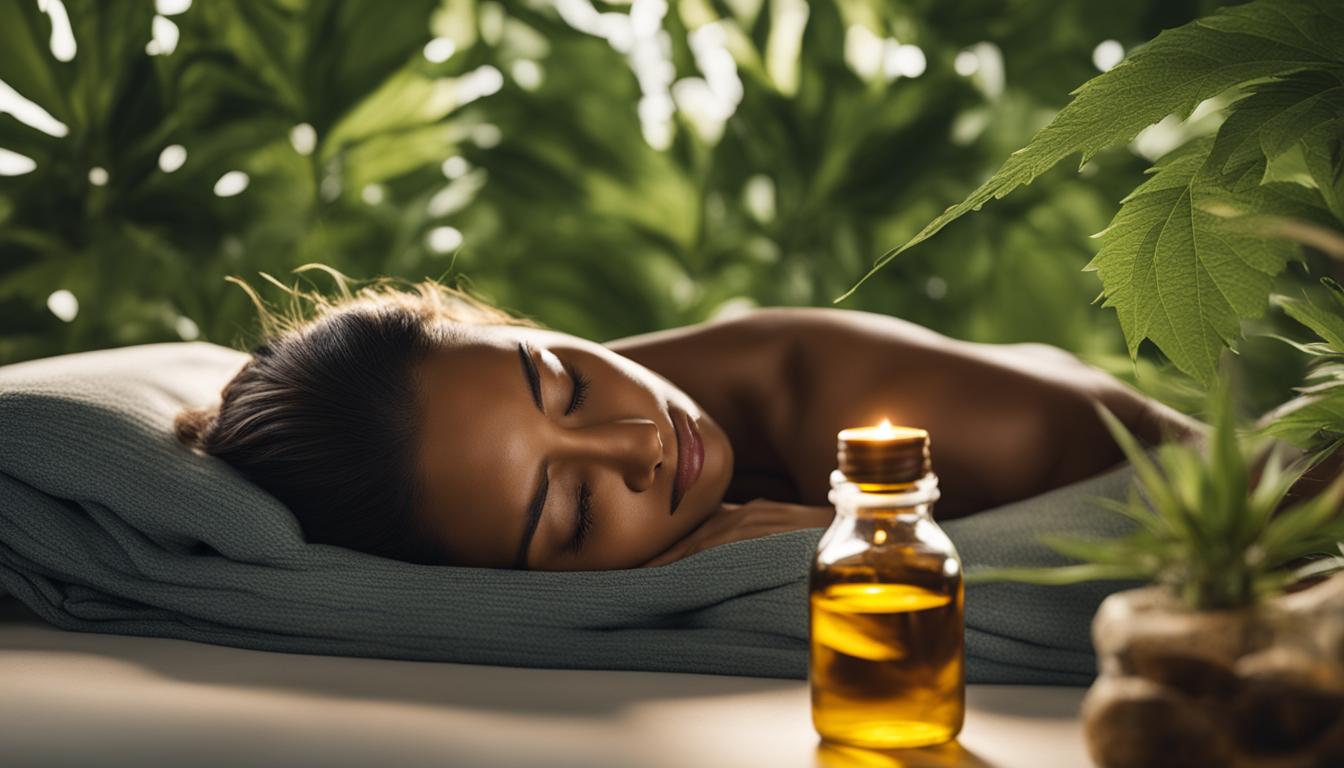

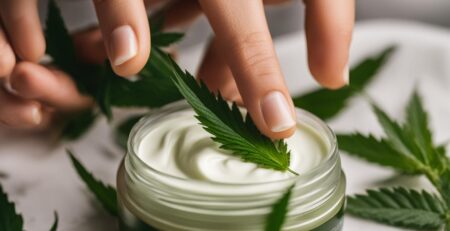


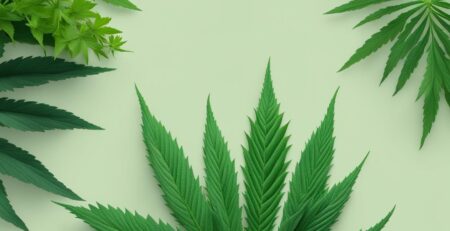




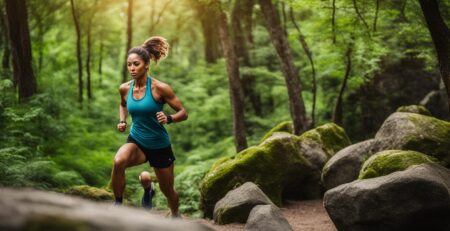
Leave a Reply